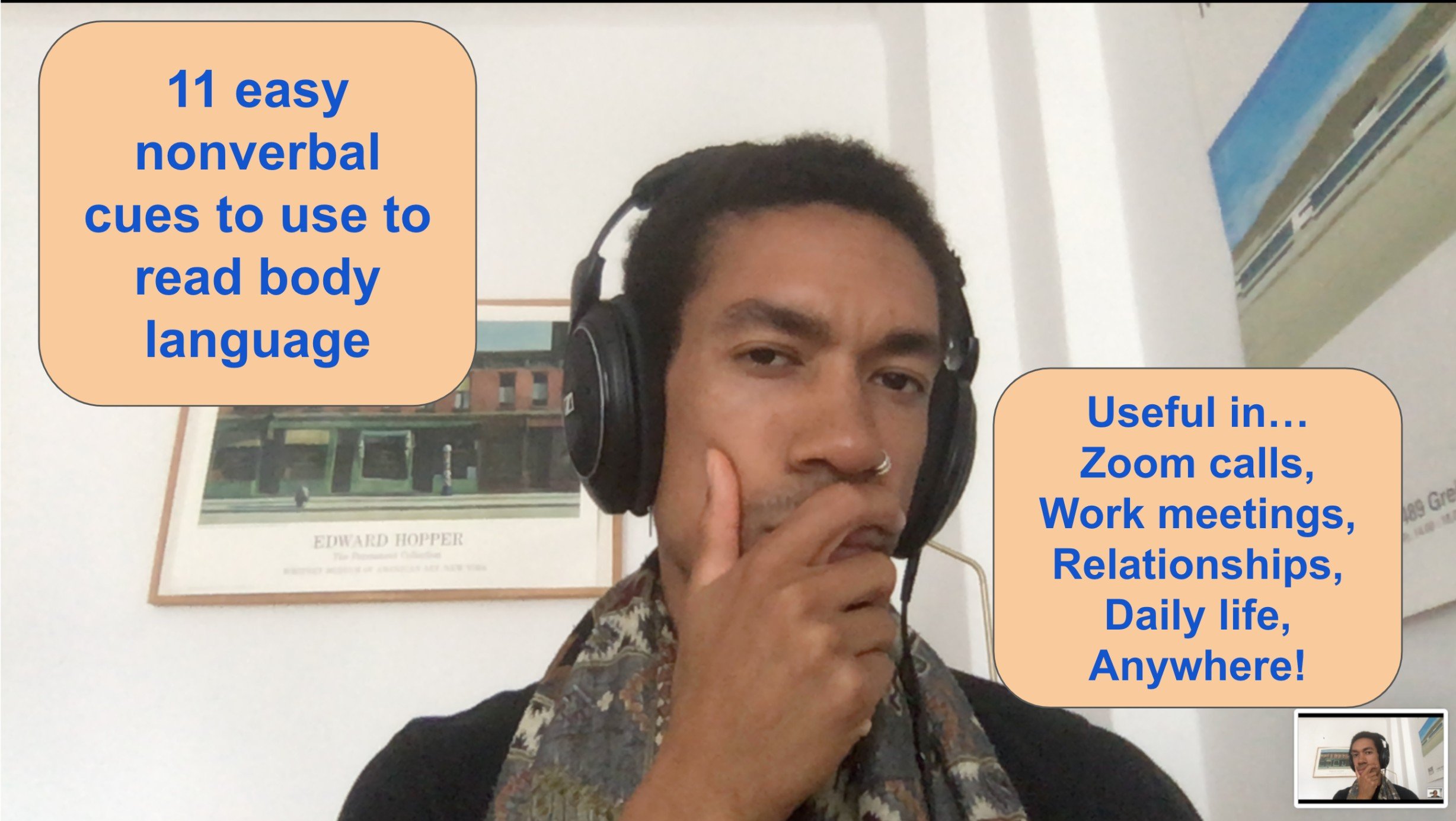11 Non verbal communication examples: Reading Zoom body language
Enhanced emotional intelligence is a must for those who want to excel in the era of Zoom/remote work. Here are several tips to step up your non-verbal/body language skills.
These tips stem from my experiences in 10 years of digital sales, with supplemental knowledge from my recent work transitioning into career coaching.
11 Non verbal communication examples
1. Head tilted to the side
Positive sign. Means: “I’m listening/focused on you; go on”
2. Hand/finger/pencil on mouth (not supporting head)
Positive sign. Means: “I have something to say”
3. Hand under chin/head (supporting head) or rubbing eyes
Negative sign. Means: “I’m tired/fatigued/unengaged”
4. Slow speech, eyes wandering up and left/right
Neutral sign. Means: “I’m thinking/processing/not yet sure”
5. Up and down movement of hands/arms
Neutral sign. Means: “I’m confident/firm”
6. Leaning back/away
Negative sign. Means disengagement: “I’m undecided/processing or in disagreement”
7. Leaning in/forward
Positive sign. Means engagement: “I’m interested/excited”
UNLESS leaning on something to support weight of torso, then negative sign meaning “I’m fatigued.”
8. Slow head nodding (especially when combined with looking up right/left)
Positive sign. Means: “I’m processing or realizing and close to an ‘aha’ moment”
9. Wringing hands/fidgeting/squirming
Negative sign. Means: “I’m uncomfortable/nervous”
10. Raised eyebrows/wrinkled forehead (especially when combined with high inflection in voice):
Neutral sign. Means: “I’m seeking alignment/vulnerable”
11. Compressed lips
Negative sign. Means: “I dislike/am opposed”
That’s all for today – thanks for reading! Learn more about how working with a personal development coach can help you to live a more fulfilling life, sign up for my newsletter, and stay tuned for more self-discovery essays!
If this subject has piqued your interest, I bet you’ll get a kick out of watching the below video on reading body language by an FBI agent, too!
